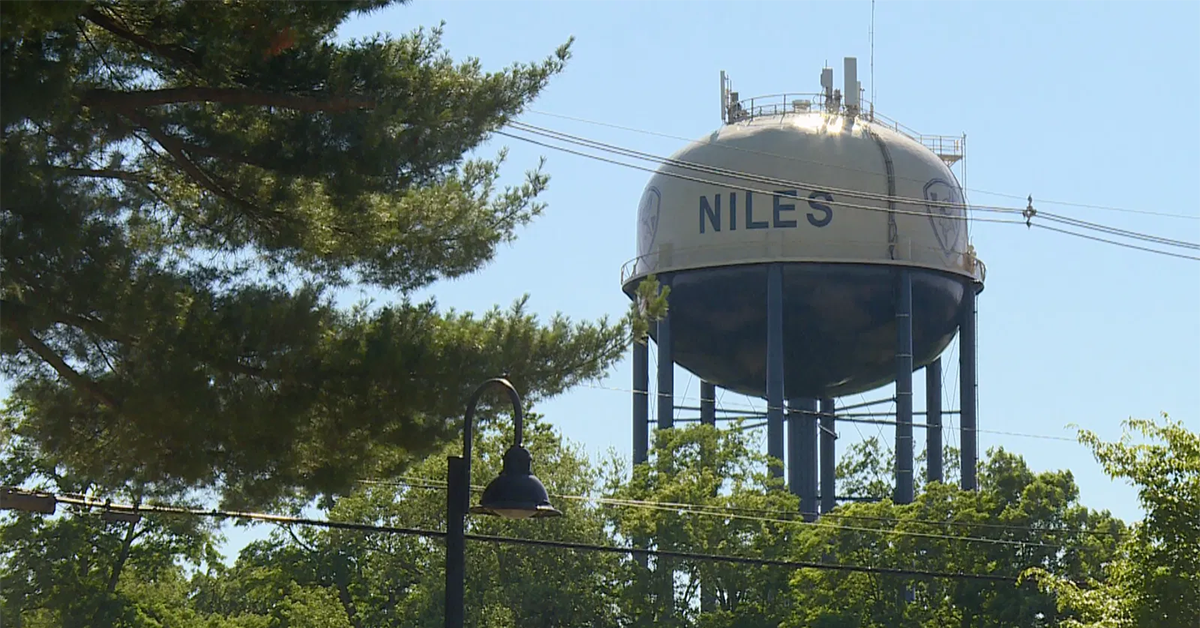Understanding Young Adults’ Perceptions of Cannabis Consumption Risks

As the cannabis industry continues to evolve, particularly in Michigan, understanding public perception, especially among young adults, is crucial for policy development and education. A groundbreaking study from the University of Michigan delves into how young adults view the risks associated with different methods of cannabis consumption.
The Landscape of Cannabis Consumption
The U.S. has witnessed a notable shift in the cannabis market in recent years. The legal availability of cannabis for recreational use has extended to roughly half the states. Along with the growing accessibility, there has also been a proliferation of cannabis products, many of which contain elevated levels of THC compared to the past. This increase in potency carries heightened risks, from developing a cannabis use disorder to experiencing significant consequences in life.
Unpacking the Perceptions
Led by Autumn Rae Florimbio, a T-32 Fellow at the U-M Addiction Center, and her team of researchers, the study explores the perceptions of young adults concerning various cannabis consumption methods, including smoking, vaping, dabbing, and ingestion. Their research also touches upon the patterns of consumption, distinguishing between regular and occasional use.
Drawing from a group of young adults in Flint, the results are enlightening. The majority of non-users perceived regular vaping as the riskiest method. In contrast, those who consumed cannabis either solely by smoking or through multiple methods viewed regular dabbing as presenting the highest risk.
These distinctions in perceptions can serve as invaluable data when forming public health strategies targeting cannabis use among young adults.
Autumn Rae Florimbio, Ph.D., comments on the significance of their findings: "Our results shed light on how young adults perceive cannabis-related risks, emphasizing that perceptions vary based on the method of consumption. These insights pave the way for future research, shaping policies and interventions aimed at minimizing cannabis-related harms."
Support and Appreciation
The research received funding from the National Institute on Drug Abuse [NIDA #045712; PI: Bonar] and support for Dr. Florimbio's contributions came from the National Institute on Alcohol Abuse and Alcoholism [NIAAA #007477; PI: Blow]. The team extends their gratitude to the patients and staff at Hurley Medical Center, whose collaboration was instrumental for this study.
The Takeaway
While cannabis consumption among emerging adults (ages 18-25) continues to rise, and the perception of its risks decreases, the nuances of these perceptions can be the key to effective public health measures. As the cannabis landscape transforms, understanding these perceptions becomes essential for policy-making and public health strategies.
Penn Township Residents Voice Concerns Over Cannabis Farms

During a Planning Board meeting, concerns of local residents intensified as recreational marijuana growers establish operations in the township.
Residents raised various apprehensions, primarily about the odor, health implications, and potential property value decline due to marijuana cultivation. The Cass County meeting saw escalating tensions since recreational marijuana cultivation was permitted in Penn Township. Many residents have been outspoken about their reservations.
From the onset, the relationship between the growers and the community has been strained. Mike Biesboer of 'Friends of Penn Township' stated, "The overwhelming odor reminiscent of a skunk is the primary concern. It affects health and, recently, concerns about crop dusters have emerged as a safety issue. These are the matters we are anxious about."
In response to the growing concerns, the community initiated the 'Friends of Penn Township' to safeguard the township's quality of life. They have been consistently attending the board meetings for several months, urging the township board to act on their concerns.
Mike Biesboer expressed the community's frustration, saying, "It's been 12 months, and it feels like the board hasn't listened to us. Not once have they voted in favor of the residents on marijuana-related matters."
While the Planning Board aims to pass an amendment on medical marijuana with restrictions similar to recreational policies, 'Friends of Penn Township' does not support it. They conveyed that they feel unheard, leaving them with a single course of action. Biesboer emphasizes, "We'll continue to attend meetings, urge residents to participate, and persistently request change."
The subsequent Penn Township board meeting is scheduled for October 9th.
Niles Greenlights Two Businesses for Microbusiness Class A Licenses

In the ever-evolving landscape of Michigan's marijuana industry, Niles is taking significant strides forward. At Monday's Niles City Council meeting held at the City of Niles Fire Department, two businesses, BS Ironwood, LLC and Native Michigan Remedies (NMR), secured approvals for Microbusiness Class A Licenses.
Class A microbusinesses, distinct from standard licenses, permit the cultivation of up to 300 in-house plants. They can buy and sell mature plants, edibles, and other products from licensed dealers. However, they cannot process plants into oils, extracts, or infused cannabis products.
BS Ironwood, LLC Gears Up for Niles Expansion
BS Ironwood has its sights set on a facility at 1641 E. Main St., formerly an automotive business. The firm is set to inject almost $1 million for the acquisition and revamp of this property. This initiative is backed by the company's robust capital reserves, ensuring a seamless transition.
Though Niles hasn't collaborated with BS Ironwood previously, the company has reassured the city of its adherence to all marijuana-related regulations. This expansion also brings with it the promise of roughly 20 new jobs for the locals. Amar Warraich, the sole member-manager of BS Ironwood, is no novice in this sector, having displayed significant expertise across nine Michigan municipalities.
Native Michigan Remedies: Growing and Giving Back
Located at 2112 Industrial Dr., NMR is no stranger to Niles, already holding grower and processor licenses. The company has a flawless track record, having cleared all inspections and settled all associated fees. With an existing investment of $3 million, owners Bill Haas and Brian Crespo are pledging an additional $100,000 for facility enhancements. They believe the Microbusiness Class A license will further solidify their presence in Niles.
Beyond business, Crespo and Haas are also making community inroads. Crespo founded Niles Neighbors, an initiative aimed at aiding the elderly and disabled in home beautification. Their community involvement extends to collaborations like a turkey and toy giveaway during the festive season with Primitiv, as well as active participation in City Council discussions.
Addressing Financial Hurdles for Michigan's Cannabis Companies: Looking Beyond Bankruptcy

For many in Michigan and across the U.S., the challenges faced by the cannabis industry are well-known. Despite being an emerging market, the industry confronts numerous federal hurdles including stringent tax rules, limited banking options, challenges accessing capital markets, varied intellectual property rights, and restrictions on interstate trade. Michiganders closely following the industry are well-versed with these hurdles that hinder the growth of our state's promising cannabis sector.
Recently, a new obstacle has emerged in mature cannabis markets, including Michigan: the lack of federal bankruptcy protections for cannabis ventures. This poses significant challenges for these businesses and their stakeholders, particularly during economic downturns.
Yet, it's not a completely bleak scenario. Although federal bankruptcy protections might not be accessible, Michigan's cannabis businesses have alternative contractual and state law mechanisms to counteract insolvency and financial distress. It's vital for Michiganders to stay informed and back our local businesses as they navigate this intricate path, ensuring the sustained growth of our state's cannabis industry.
Upcoming Expungement Fairs in Michigan (2023)

Michigan, a state that has recognized the potential benefits of marijuana, is yet again leading the way with a series of expungement fairs across the region. These events are invaluable opportunities for individuals with marijuana-related convictions to wipe their records clean and start afresh.
What is Expungement?
Expungement is a legal process through which an individual's criminal record is "sealed" or erased in the eyes of the law. Once a conviction is expunged, it's as though the conviction never occurred. The individual no longer needs to disclose the conviction, for example, on job applications. It's important to note, however, that expunged records aren't entirely destroyed. They're inaccessible to the general public, but certain governmental agencies can still access them under specific conditions.
Who's Behind These Fairs?
Several notable organizations have partnered up to ensure the success of these expungement fairs. Chief among them are cannabis-related groups like "The Black & Brown Cannabis Guild" and "Stash Ventures". Their involvement underscores the broader push within the cannabis industry to rectify the harms caused by marijuana prohibition, especially in communities of color disproportionately affected by drug-related convictions.
However, it's not just the cannabis industry stepping up. The Michigan Department of Attorney General has been a significant partner, showcasing the state's commitment to supporting its citizens. Various other organizations, both public and private, are lending their weight to these initiatives, marking a collective effort to bring about change.
List of Upcoming Expungement Fairs:
-
September 20th: Detroit Hispanic Development Corporation Expungement Fair
- Partners: Detroit Hispanic Development Corporation, Michigan Department of Attorney General
- Location: Detroit Hispanic Development Corporation
-
September 23rd: Michigan Expungement Week 2023 - Grand Rapids Expungement Fair
- Partners: The Black & Brown Cannabis Guild, Michigan Department of Attorney General
- Location: Rapid Central Transit Station
-
September 23rd: Stash Ventures Muskegon Expungement Fair
- Partners: Stash Ventures, Michigan Department of Attorney General
- Location: Frauenthal Center
-
September 26th: Michigan Expungement Week 2023 - Muskegon Expungement Fair
- Partners: The Black & Brown Cannabis Guild, Michigan Department of Attorney General
- Location: Fields Cannabis
-
September 27th: Michigan Expungement Week 2023 - Benton Harbor Expungement Fair
- Partners: The Black & Brown Cannabis Guild, Michigan Department of Attorney General
- Location: Consortium for Community Development
-
September 30th: Michigan Expungement Week 2023 - Detroit Expungement Fair
- Partners: The Black & Brown Cannabis Guild, Michigan Department of Attorney General
- Location: Andy Arts Community Center
-
October 27th: Cooley Law School Expungement Fair
- Partners: Cooley Law School, State Rep. Kara Hope, State Rep. Sarah Anthony, Michigan Department of Attorney General
- Location: Cooley Law School
- https://www.michigan.gov/ag/initiatives/expungement-assistance/upcoming-expungement-fairs/2023/10/27/cooley-law-school-expungement-fair
For those seeking a second chance, attending one of these fairs can be the first step towards a brighter future. The collaboration between cannabis organizations and the state showcases the potential for positive change when different sectors come together for the common good.
Celebrating Love with a Historic Cannabis Wedding

From over 15,000 entrants, Waterford, Michigan's own Danielle Geralds and Nile Hunt are the lucky winners of the inaugural Cannabis Wedding Giveaway, generously presented by Greenhouse of Walled Lake. Their romantic journey began while Hunt served valiantly in the U.S. Navy. Tragically, an IED incident in Afghanistan left him with a severe lifelong injury. However, cannabis has been instrumental in alleviating his pain.
The duo is set to exchange their vows at the picturesque Greenhouse of Walled Lake on Thursday, October 5th at 4 pm. With more than 50 loved ones expected to attend, this intimate ceremony will unfold just outside the renowned Greenhouse.
This one-of-a-kind wedding, financed and curated by Greenhouse of Walled Lake, Choice Labs of Jackson, and Treehouse CBD, will showcase an elegant cannabis-inspired theme. A seasoned local wedding planner has crafted the entire affair. Highlights include gourmet THC-infused cuisine, mocktails, and exclusive Bud and Dab bars. The festivities also feature a rehearsal dinner on October 4th, comprehensive photography and videography, lavish bridal attire, and a post-wedding stay at the Westin Airport Hotel. Guests can look forward to captivating performances by a violinist, DJ, and the inclusion of the local high school marching band playing the classic "Here Comes the Bride." The esteemed hospice Minister, Steve Woodcock, has the honor of officiating the ceremony.
Jerry Millen, the proud owner of Greenhouse of Walled Lake, remarked, "No dispensary in the United States has ever curated a completely cannabis-centric wedding. We're delighted to pioneer this experience. Moreover, we warmly invite the community to witness this unprecedented event, which boasts a budget exceeding $40,000."
Post-nuptials, attendees can continue the celebration at the Green Oak Food Studios in South Lyon, starting with a cocktail hour at 6:30 pm and leading into the grand reception.
Related Article: Dive deeper into Greenhouse of Walled Lake's recent challenges with our article, "Greenhouse of Walled Lake's Battle Against Rising Counterfeit Currencies." This Michigan dispensary's rising troubles with counterfeit cash underscore the urgency of federal cannabis legalization to ensure safer and more transparent transactions.


 Helpful Links
Helpful Links